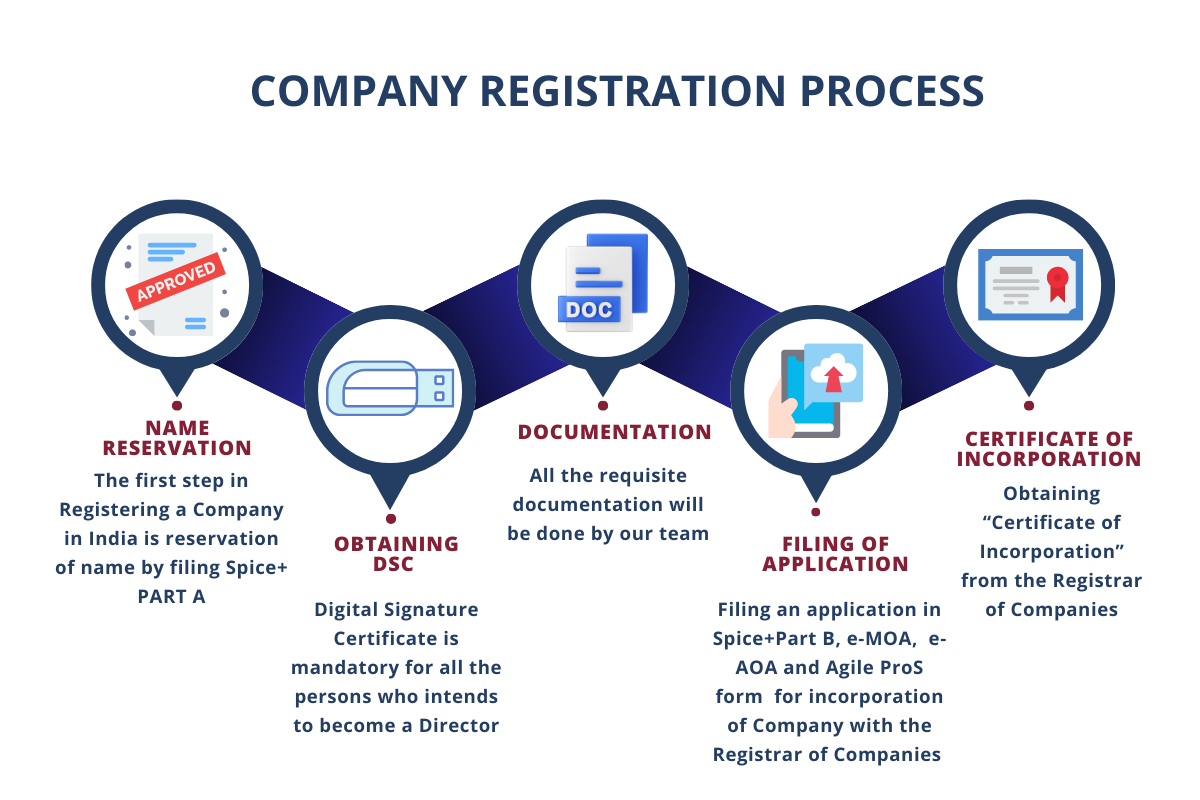Company Registration for Manufacturing Industry
Manufacturing sector in India is one of the high growth sectors, due to factors like power growth, availability of skilled and unskilled labor, government thrust on manufacturing etc. The Make in India program launched by Prime Minister Narendra Modi also aims to place India as a global manufacturing hub and give global recognition to the Indian economy.
India’s liberated FDI policy for the manufacturing sector coupled with continuous efforts on increasing ease of doing business initiatives make the Indian manufacturing sector prospects brighter in near future. Measures taken by the Government on FDI policy reforms have resulted in increased FDI inflows in the country. FDI Equity inflow in Manufacturing sectors has increased to INR 1,58,332 crore in Financial Year 2021-22 from INR 89,766 crore (FY 2020-21), which is an increase of 76%.
Minuimum Requirements for Company Registration for Manufacturing Industry
-
Minimum 2 shareholders
-
One of the Directors must be Indian Resident
-
DSC(Digital Signature Certificate) for two directors
-
Minimum 2 Directors
-
No Minimum Authorised Share Captial
-
The directors and the shareholders can be same person
-
DIN(Director Identification number) for 2 Directors

Documents Required for Private Limited Company Registration
- Copy of PAN (in case of resident); OR PAN Declaration (in case of Non Resident)
- Copy of Passport (in case of non-resident);
- Declaration in Form INC-9 for First Directors*
- Copy of proof of identity(Voters ID/Driving License/Passport);
- Copy of residential proof (Bank Statement/Telephone Bill/ Mobile Bill/ Gas Bill not older than 2 months);
- Consent to act as directors*;
- Disclosure of interest in other entities*;
From Directors
- Copy of Sale deed/ Property Deed (in case of owned property) or Lease Deed (in case of rented premises);
- Copy of Telephone or Mobile/Electricity or Gas Bill of registered office (Any one, not older than 2 months) ;
- No-objection Certificate from the owner of the premises for its use as registered office*;
- Memorandum and Articles of Association*
From Company
- Copy of PAN (in case of resident);
- Copy of Passport (in case of non-resident);
- Copy of proof of identity (Voter\'s ID/Driving License/Passport);
- Copy of residential proof (Bank Statement/ Telephone Bill/ Mobile Bill/Gas Bill not older than 2 months);
From Subscribers
Note 1: In case of foreign directors/subscribers, all the aforesaid documents should be notarized and apostilled or consularized. In case documents are not in english, translated copy in english should be notarized and apostiled or consularized. please read the attestation requirements of documents below in FAQs
Note 2: *Draft will be provided by our team
Note 3: Following additional documents will be required in case the subscriber of the company to be incorporated is another company: • Copy of resolution passed by the subscriber company; • Certificate of Incorporation of the Subscriber Company.
Advantages of a Private Limited Company Formation
Separate Legal entity
As a juristic legal person, both the company and its members have separate legal identity that is distinct from each other.
Perpetual Succession
A company existence is uninterrupted, even the death or insolvency of shareholder(s)/ directors cannot affect the continuity of business of the company.
Limited Liability
The liability of members of a private limited company is limited to the amount of share capital remaining unpaid on the shares held by them.
Easy transferability of ownership
The ownership in a private limited company is easily transferable by way of transfer of shares from one member to another subject to the restriction that the total number of members of a private limited company cannot exceed 200.
FDI Allowed
In Private Limited Comapny, 100% Foreign Direct Investment is allowed that means any foreign entity or foregin person can directly invest in a Private Limited Company.
Builds Cerdibility
The particulars of the company are the available on a public database. Which improves the cerdibility of the company as it makes it easy to authenticate the details.
Frequently Asked Questions
Download

Download Business Guide
This guide provides detailed information about the India Ecosystem, tax structure, major compliance etc. It helps entrepreneurs understand how to start and grow their business in India.

